Informationen zur Zeitschrift
Startseite » Programm » IJAR 2-2022 | Conceptualising Action Research: Basic assumptions and terminology in Action Research
IJAR 2-2022 | Conceptualising Action Research: Basic assumptions and terminology in Action Research
Erscheinungsdatum : 18.10.2022
0,00 € - 29,00 €
Inhalt
IJAR – International Journal of Action Research
2-2022: Conceptualising Action Research: Basic assumptions and terminology in Action Research
Olav Eikeland / Søren Frimann / Lone Hersted / Julie Borup Jensen: Editorial
Contributions
Finn Thorbjørn Hansen: What would apophatic Action Research look like? Learning to consider delicate matters of silence and wonder in professional practices
Christine Edwards-Groves / Karin Rönnerman: Action Research conceptualised in seven cornerstones as conditions for transforming education
Catrine Torbjørnsen Halås: Praxeological dialogues from within, handling tensions in dialogical praxis-oriented Action Research
Mark K. Watson: How to go on? An ethnographic return to the ‘rough ground’ in PAR
Olav Eikeland / Søren Frimann / Lone Hersted / Julie Borup Jensen: Are action researchers mixed up? Reviewing and revising basic assumptions, concepts, and terminology in and by means of action research
Discussion
Ken Dovey: Discussion Paper: Response to Social Productivity and Future Perspectives on Action Research
Interview
Miren Larrea / Richard Ennals: Interview with Danilo Streck: About my learning journey with Action Research
Download of Table of Contents / Inhaltsverzeichnis herunterladen
Download of single articles (Open Access/fee-based): ijar.budrich-journals.com
You can register here for the IJAR alert.
Einzelbeitrag-Download (Open Access/Gebühr): ijar.budrich-journals.com
Sie können sich hier für den IJAR-Alert anmelden.
Zusätzliche Information
| Verlag | |
|---|---|
| ISSN | 1861-1303 |
| eISSN | 1861-9916 |
| Jahrgang | 18. Jahrgang 2022 |
| Ausgabe | 2 |
| Erscheinungsdatum | 18.10.2022 |
| Umfang | 108 |
| Sprache | Englisch |
| Format | 17 x 24 cm |
| DOI | |
| Open Access-Lizenz | |
| Homepage |
Autor*innen
Schlagwörteraction research, apophatic philosophy, basic historical concepts, community, contemplative wonder, conventional research methods, data, democracy, dialogical action research, ethnography, existential phenomenology, experiential learning, external relations, geschichtliche Grundbegriffe, gnoseology, immanent critique, inner inconsistencies, inquiry, Jakob Meløe, participatory action research, practice architectures, praxeology, Praxis, praxis action research, site ontological, Tensions, voice, Wittgenstein
Abstracts
What would apophatic Action Research look like? Learning to consider delicatematters of silence and wonder in professional practices (Finn Thorbjørn Hansen)
Inspired by an ‘apophatic turn’ in theology, philosophy and art, and with insights from existential phenomenology, the article encourages us to step back as actors in order to let life or the phenomenon itself act upon us. This kind of apophatic thinking is not so far away from the thinking of the Norwegian philosopher Olav Eikeland when he describes “Insider and Praxis Action Research”. And yet, the apophatic potentials in his way of understanding action research are here elaborated by pointing to three dimensions: the Knowledge-, Beingand Mystery dimensions in a praxis, and to the four ways of seeing praxis from within both a “gnoseology” and an “agnoselogy”. The latter being led by a deep sense of wonder followed by what Daoist’s call Wu Wei or “effortless actions”. Keywords: Praxis Action Research, apophatic philosophy, existential phenomenology, contemplative wonder
» Download Single Contribution Free of Charge (Budrich Journals) / Einzelbeitrag kostenlos herunterladen (Budrich Journals)
Action Research conceptualised in seven cornerstones as conditions for transforming education (Christine Edwards-Groves and Karin Rönnerman)
This article traces the philosophical and theoretical roots of Action Research to rescript its promise for site-based educational formation, reformation and transformation. The process of historicising Action Research through an extensive review of the extant literature, enabled us to establish seven cornerstones that captured the essence of the critical conditions: the practices and practice architectures, that give coherence and comprehensibility to Action Research as necessary for sustained and sustainable change in education. Framing these practices and practice architectures as cornerstones sets down important benefits for contemporary education requiring critical inquiry, rethought purposeful action and systematic responsive development. The cornerstones: contextuality, commitment, communication, collaboration, criticality, collegiality and community, were derived from viewing Action Research from its historical principle committed to democratic way of working. It is our position that the cornerstones account for, acknowledge and extend traditional perspectives and descriptions; and assist practitioners deepen understandings about the conditions necessary for opening up generative possibilities of Action Research in ways that do not neglect or lose sight of its core historical connections and democratic virtues. Keywords: Action Research, community, democracy, inquiry, practice architectures, site Ontological
» Download Single Contribution Free of Charge (Budrich Journals) / Einzelbeitrag kostenlos herunterladen (Budrich Journals)
Praxeological dialogues from within, handling tensions in dialogical praxis-oriented Action Research (Catrine Torbjørnsen Halås)
This paper addresses the need to develop concepts and terminology more and better adjusted to knowledge production with and from within practices, and help handle tensions between research and practice in Dialogical Praxis- oriented Action Research. Building on Olav Eikeland’s ideas of dialogues towards Praxis-based Theoria, supported by Hanna Arendt’s perspectives on action, and based on experiences from a concrete project, the question explored, is whether Jakob Meløe’s praxeological perspectives can give us concepts and terminology which can help us handle this challenge. After describing the ideas and methodology of the praxeology, the author discusses its potential impact; To support dialogical deliberative learning processes, acknowledging knowledge as an open-ended question of becoming, and praxis as a form of relational and ethical kind of knowing, empowering the subjects to create new beginnings, engaged in the never-ending process of change. Keywords: Dialogical Action Research; Tensions; Praxis; Jakob Meløe; Praxeology
» Download Single Contribution Free of Charge (Budrich Journals) / Einzelbeitrag kostenlos herunterladen (Budrich Journals)
How to go on? An ethnographic return to the ‘rough ground’ in PAR (Mark K. Watson)
Inspired by philosophical concerns with ordinary language, I write as a practitioner (and ethnographer) frustrated by how pictures of research that reduce action to quests for rational consensus seemingly blind people to the spontaneous and realistic pull that PAR exerts on participants to return to the “rough ground” of everyday life. Drawing on the case study of an Indigenous radio show in Montreal, I look ethnographically at the transformative qualities of Action (Research) as woven into participants’ response to the more ordinary and immediate question: how to go on? I suggest that what matters in participatory-action is not so much knowing or the failure to know than acknowledging and accepting (or accommodating or refusing) others’ positions and commitments. Keywords: Participatory Action Research; ethnography; Wittgenstein; voice
» Download Single Contribution Free of Charge (Budrich Journals) / Einzelbeitrag kostenlos herunterladen (Budrich Journals)
Are action researchers mixed up? Reviewing and revising basic assumptions, concepts, and terminology in and by means of action research (Olav Eikeland, Søren Frimann, Lone Hersted and Julie Borup Jensen)
The article explores and discusses whether we as action researchers are undermining or subverting our own intuitions and intentions, or at least not doing justice to it, when mixing a) learning and exploration through individual and collective action and reflection, with b) elements from conventional research methods. The article’s basic question: Can the intentions and results from a) be reduced to and validated fully or partly through b) conventional methods? Can we save the scientific legitimacy of action research by ultimately resorting to conventional methods and theories? What does action research uniquely add in relation to conventional learning, knowledge generation, and change projects? We discuss some challenges raised by questions like these, and suggest ways of handling them. After exploring ways of being “seduced” by conventional methods, we conclude by recommending a gnoseology to replace a one-dimensional epistemology, and by explaining and recommending the procedure of immanent critique as a way of developing insights and competencies from the inside of practices; i. e. a genuinely Action research method. Keywords: basic historical concepts, conventional research methods, data, experiential learning, external relations, geschichtliche Grundbegriffe, gnoseology, immanent critique, inner inconsistencies
» Download Single Contribution Free of Charge (Budrich Journals) / Einzelbeitrag kostenlos herunterladen (Budrich Journals)
Inhalt
Inhalt
IJAR – International Journal of Action Research
2-2022: Conceptualising Action Research: Basic assumptions and terminology in Action Research
Olav Eikeland / Søren Frimann / Lone Hersted / Julie Borup Jensen: Editorial
Contributions
Finn Thorbjørn Hansen: What would apophatic Action Research look like? Learning to consider delicate matters of silence and wonder in professional practices
Christine Edwards-Groves / Karin Rönnerman: Action Research conceptualised in seven cornerstones as conditions for transforming education
Catrine Torbjørnsen Halås: Praxeological dialogues from within, handling tensions in dialogical praxis-oriented Action Research
Mark K. Watson: How to go on? An ethnographic return to the ‘rough ground’ in PAR
Olav Eikeland / Søren Frimann / Lone Hersted / Julie Borup Jensen: Are action researchers mixed up? Reviewing and revising basic assumptions, concepts, and terminology in and by means of action research
Discussion
Ken Dovey: Discussion Paper: Response to Social Productivity and Future Perspectives on Action Research
Interview
Miren Larrea / Richard Ennals: Interview with Danilo Streck: About my learning journey with Action Research
Download of Table of Contents / Inhaltsverzeichnis herunterladen
Download of single articles (Open Access/fee-based): ijar.budrich-journals.com
You can register here for the IJAR alert.
Einzelbeitrag-Download (Open Access/Gebühr): ijar.budrich-journals.com
Sie können sich hier für den IJAR-Alert anmelden.
Bibliografie
Zusätzliche Information
| Verlag | |
|---|---|
| ISSN | 1861-1303 |
| eISSN | 1861-9916 |
| Jahrgang | 18. Jahrgang 2022 |
| Ausgabe | 2 |
| Erscheinungsdatum | 18.10.2022 |
| Umfang | 108 |
| Sprache | Englisch |
| Format | 17 x 24 cm |
| DOI | |
| Open Access-Lizenz | |
| Homepage |
Produktsicherheit
Bewertungen (0)
Bewertungen
Es gibt noch keine Bewertungen.
Autor*innen
Autor*innen
Schlagwörter
Schlagwörteraction research, apophatic philosophy, basic historical concepts, community, contemplative wonder, conventional research methods, data, democracy, dialogical action research, ethnography, existential phenomenology, experiential learning, external relations, geschichtliche Grundbegriffe, gnoseology, immanent critique, inner inconsistencies, inquiry, Jakob Meløe, participatory action research, practice architectures, praxeology, Praxis, praxis action research, site ontological, Tensions, voice, Wittgenstein
Abstracts
Abstracts
What would apophatic Action Research look like? Learning to consider delicatematters of silence and wonder in professional practices (Finn Thorbjørn Hansen)
Inspired by an ‘apophatic turn’ in theology, philosophy and art, and with insights from existential phenomenology, the article encourages us to step back as actors in order to let life or the phenomenon itself act upon us. This kind of apophatic thinking is not so far away from the thinking of the Norwegian philosopher Olav Eikeland when he describes “Insider and Praxis Action Research”. And yet, the apophatic potentials in his way of understanding action research are here elaborated by pointing to three dimensions: the Knowledge-, Beingand Mystery dimensions in a praxis, and to the four ways of seeing praxis from within both a “gnoseology” and an “agnoselogy”. The latter being led by a deep sense of wonder followed by what Daoist’s call Wu Wei or “effortless actions”. Keywords: Praxis Action Research, apophatic philosophy, existential phenomenology, contemplative wonder
» Download Single Contribution Free of Charge (Budrich Journals) / Einzelbeitrag kostenlos herunterladen (Budrich Journals)
Action Research conceptualised in seven cornerstones as conditions for transforming education (Christine Edwards-Groves and Karin Rönnerman)
This article traces the philosophical and theoretical roots of Action Research to rescript its promise for site-based educational formation, reformation and transformation. The process of historicising Action Research through an extensive review of the extant literature, enabled us to establish seven cornerstones that captured the essence of the critical conditions: the practices and practice architectures, that give coherence and comprehensibility to Action Research as necessary for sustained and sustainable change in education. Framing these practices and practice architectures as cornerstones sets down important benefits for contemporary education requiring critical inquiry, rethought purposeful action and systematic responsive development. The cornerstones: contextuality, commitment, communication, collaboration, criticality, collegiality and community, were derived from viewing Action Research from its historical principle committed to democratic way of working. It is our position that the cornerstones account for, acknowledge and extend traditional perspectives and descriptions; and assist practitioners deepen understandings about the conditions necessary for opening up generative possibilities of Action Research in ways that do not neglect or lose sight of its core historical connections and democratic virtues. Keywords: Action Research, community, democracy, inquiry, practice architectures, site Ontological
» Download Single Contribution Free of Charge (Budrich Journals) / Einzelbeitrag kostenlos herunterladen (Budrich Journals)
Praxeological dialogues from within, handling tensions in dialogical praxis-oriented Action Research (Catrine Torbjørnsen Halås)
This paper addresses the need to develop concepts and terminology more and better adjusted to knowledge production with and from within practices, and help handle tensions between research and practice in Dialogical Praxis- oriented Action Research. Building on Olav Eikeland’s ideas of dialogues towards Praxis-based Theoria, supported by Hanna Arendt’s perspectives on action, and based on experiences from a concrete project, the question explored, is whether Jakob Meløe’s praxeological perspectives can give us concepts and terminology which can help us handle this challenge. After describing the ideas and methodology of the praxeology, the author discusses its potential impact; To support dialogical deliberative learning processes, acknowledging knowledge as an open-ended question of becoming, and praxis as a form of relational and ethical kind of knowing, empowering the subjects to create new beginnings, engaged in the never-ending process of change. Keywords: Dialogical Action Research; Tensions; Praxis; Jakob Meløe; Praxeology
» Download Single Contribution Free of Charge (Budrich Journals) / Einzelbeitrag kostenlos herunterladen (Budrich Journals)
How to go on? An ethnographic return to the ‘rough ground’ in PAR (Mark K. Watson)
Inspired by philosophical concerns with ordinary language, I write as a practitioner (and ethnographer) frustrated by how pictures of research that reduce action to quests for rational consensus seemingly blind people to the spontaneous and realistic pull that PAR exerts on participants to return to the “rough ground” of everyday life. Drawing on the case study of an Indigenous radio show in Montreal, I look ethnographically at the transformative qualities of Action (Research) as woven into participants’ response to the more ordinary and immediate question: how to go on? I suggest that what matters in participatory-action is not so much knowing or the failure to know than acknowledging and accepting (or accommodating or refusing) others’ positions and commitments. Keywords: Participatory Action Research; ethnography; Wittgenstein; voice
» Download Single Contribution Free of Charge (Budrich Journals) / Einzelbeitrag kostenlos herunterladen (Budrich Journals)
Are action researchers mixed up? Reviewing and revising basic assumptions, concepts, and terminology in and by means of action research (Olav Eikeland, Søren Frimann, Lone Hersted and Julie Borup Jensen)
The article explores and discusses whether we as action researchers are undermining or subverting our own intuitions and intentions, or at least not doing justice to it, when mixing a) learning and exploration through individual and collective action and reflection, with b) elements from conventional research methods. The article’s basic question: Can the intentions and results from a) be reduced to and validated fully or partly through b) conventional methods? Can we save the scientific legitimacy of action research by ultimately resorting to conventional methods and theories? What does action research uniquely add in relation to conventional learning, knowledge generation, and change projects? We discuss some challenges raised by questions like these, and suggest ways of handling them. After exploring ways of being “seduced” by conventional methods, we conclude by recommending a gnoseology to replace a one-dimensional epistemology, and by explaining and recommending the procedure of immanent critique as a way of developing insights and competencies from the inside of practices; i. e. a genuinely Action research method. Keywords: basic historical concepts, conventional research methods, data, experiential learning, external relations, geschichtliche Grundbegriffe, gnoseology, immanent critique, inner inconsistencies
» Download Single Contribution Free of Charge (Budrich Journals) / Einzelbeitrag kostenlos herunterladen (Budrich Journals)


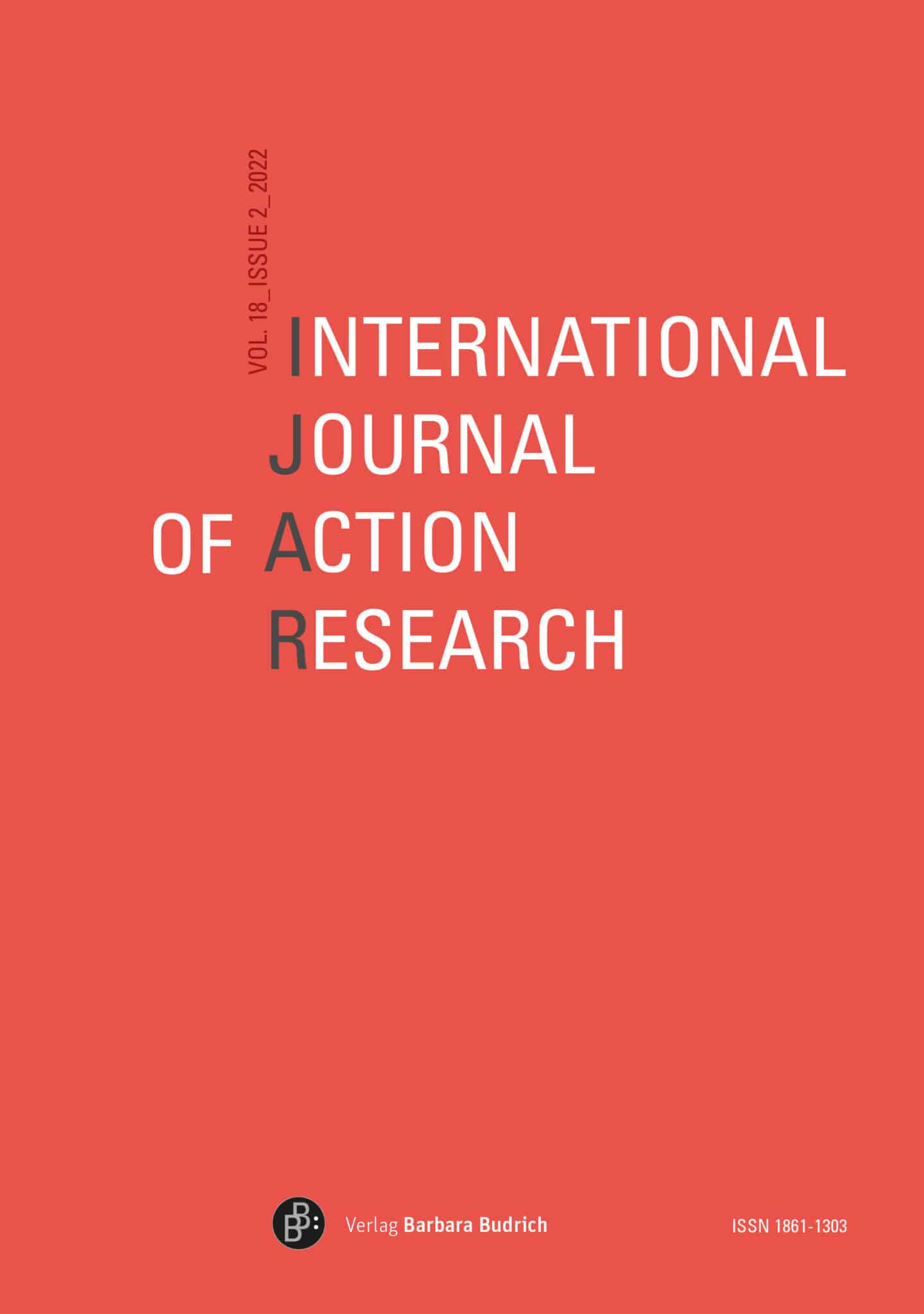

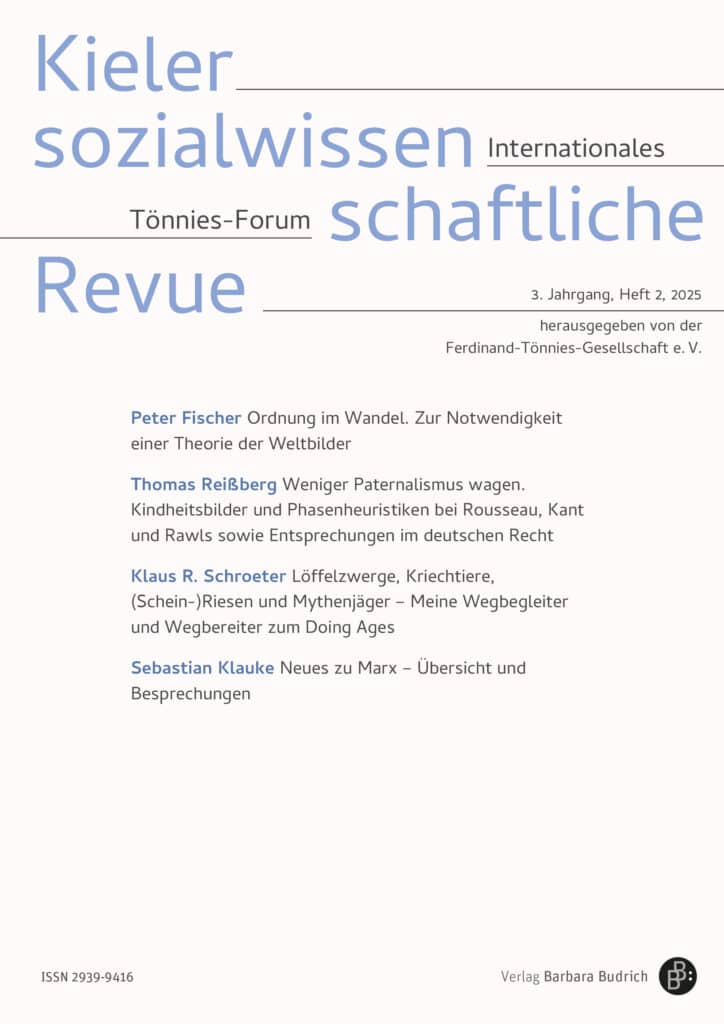
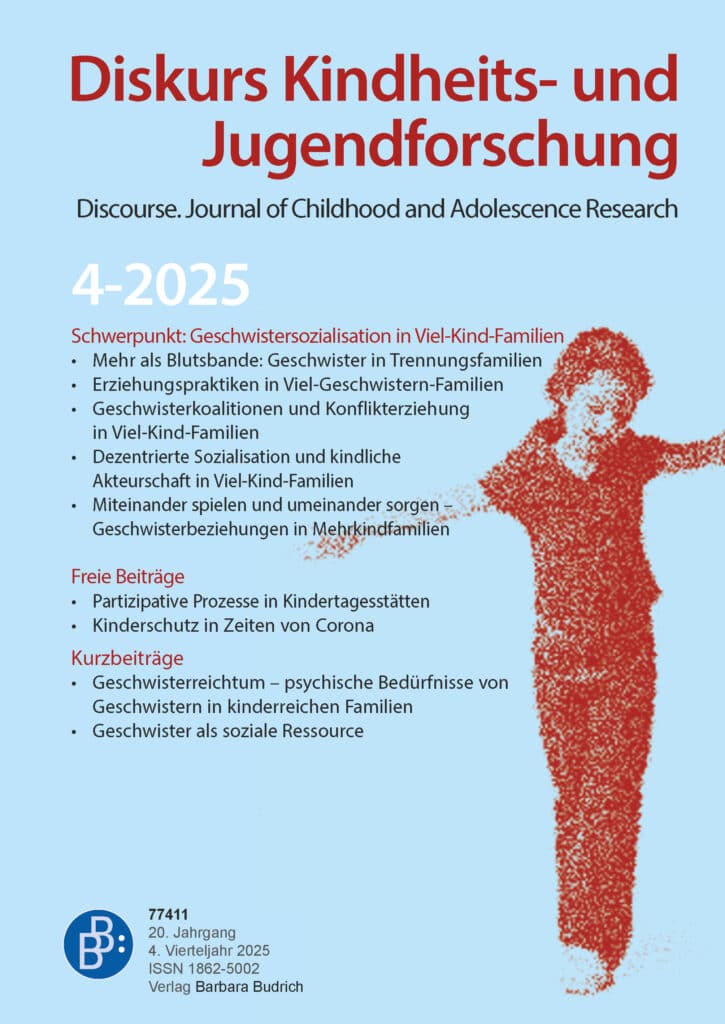
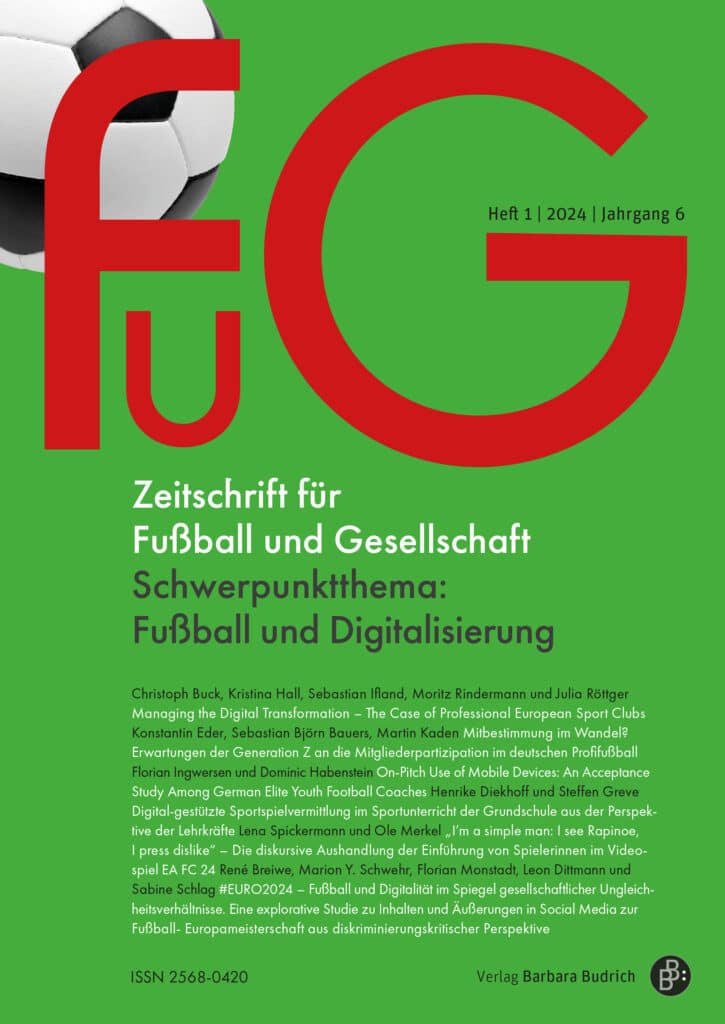
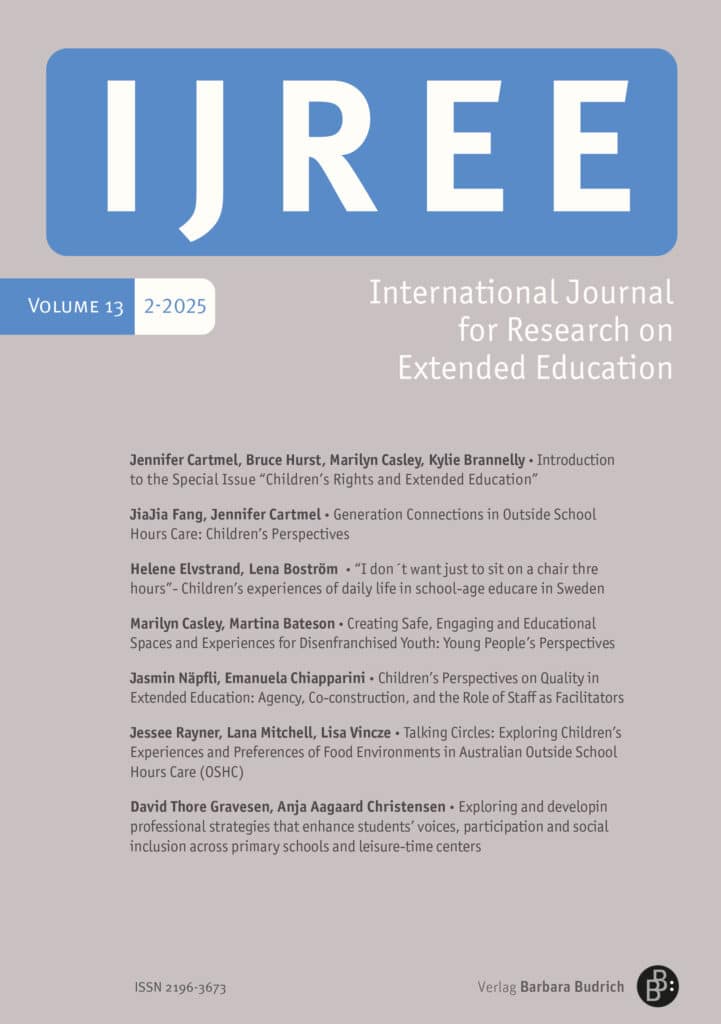


Bewertungen
Es gibt noch keine Bewertungen.